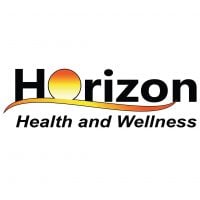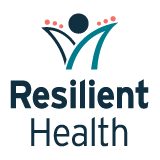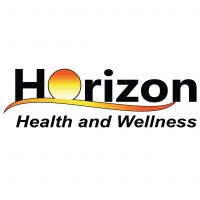Living Free Recovery Home
Drug Rehab Center in Yuma, Arizona
Living Free Recovery Home is an addiction treatment facility in Yuma, AZ that offers detox, therapy, counseling, and holistic therapies, with the goal of helping individuals achieve and maintain long-term sobriety.
Multiple patients have reported Living Free Recovery Home as permanently closed.
Research other rehabs in Yuma, Arizona, or get help finding an open facility.
About Living Free Recovery Home in Arizona
Living Free Recovery Home in Yuma, Arizona is a treatment facility that specializes in helping individuals overcome alcoholism, dual diagnosis, opioid addiction, and drug addiction. With a focus on providing a supportive and healing environment, Living Free Recovery Home offers a range of levels of care to meet each person's specific needs. Whether individuals are looking for a residential program, outpatient services, or sober-living options, this facility aims to provide the necessary resources and support to help individuals on their journey to recovery.
Living Free Recovery Home is dedicated to offering comprehensive treatment options for addiction and substance abuse. They employ various evidence-based practices and treatment methods to address the underlying issues contributing to addiction. Through individual and group therapy sessions, clients are able to explore their emotions, develop healthy coping mechanisms, and gain greater self-awareness. Additionally, Living Free Recovery Home incorporates education on relapse prevention, life skills training, and family therapy to help individuals build a strong foundation for long-term sobriety. The facility also recognizes the importance of holistic approaches and may incorporate activities such as mindfulness, yoga, and physical exercise to support overall wellness during the recovery process.
Genders
Ages
Modality
Additional
Conditions and Issues Treated
Opioid addiction starts when a person becomes addicted to legal or illegal opioids. The addiction can happen quickly, in just a matter of days. Opioid withdrawal can be extremely uncomfortable and lead the user to continue to use even if they want to quit. Stopping using an opioid requires medical observation. Sometimes inpatient treatment with a medically supervised detox is necessary for managing the withdrawal process while learning lasting tools for maintaining recovery. Medications may be used in some cases of opioid addiction.
Opioid addiction is one of Arizona‘s most prominent forms of addiction. It’s treated by detoxifying the body so that the chemicals from the medications no longer impact them and by therapies to correct behavior and target the root of the problem.
Levels of Care Offered
This center offers a variety of custom treatment tailored to individual recovery. Currently available are Drug Rehab, Outpatient, Residential, Sober-Living / Half-Way, with additional therapies available as listed below.
Outpatient treatment is considered the lower intensity level of addiction treatment. It’s ideal for early phase addiction or lower intensity addictions. It may include weekly sessions instead of daily. It may include weekly sessions instead of daily. Peer group support, 12-step programs, and individual counseling may still be involved but at a lesser frequency than an intensive outpatient program. It is a good choice for someone who doesn’t need to go through a medically supervised detox and who has a supportive home environment. It requires motivation and dedication to commit to the program without constant monitoring.
Sober living homes (abbreviated SLHs or sometimes sober houses) are temporary housing for recovering addicts. The typical SLH functions as a halfway house, providing a stable living environment for addicts in recovery. While at an SLH, residents typically meet with various therapists on site and attend regular 12-step meetings as well as other recovery group meetings.
Residential treatment programs are those that offer housing and meals in addition to substance abuse treatment. Rehab facilities that offer residential treatment allow patients to focus solely on recovery, in an environment totally separate from their lives. Some rehab centers specialize in short-term residential treatment (a few days to a week or two), while others solely provide treatment on a long-term basis (several weeks to months). Some offer both, and tailor treatment to the patient’s individual requirements.
Therapies & Programs
Individual therapy involves one-on-one sessions between the patient and therapist. It provides patients with a safe environment to openly discuss personal and sensitive issues with the therapist. They find the therapist as someone they can trust. Individual therapy aims to identify the core issues that would have led the patient to substance abuse and address them effectively. The therapist can develop patient-specific customized solutions through individual therapy, which aids speedier recovery.
Couples therapy works with clients and significant others in a professional capacity to improve relationship dynamics. This can be helpful for addicts who are trying to marry the idea of recovery into their work, family, social lives – any aspect that has to do with relationships.
Through counseling sessions, addicts will have an opportunity to talk about their addiction with professional partners. These partners can offer feedback and advice on how to get sober while keeping healthy relationships intact. A good couples therapist will help addicts understand their part in an unhealthy relationship dynamic or find ways to deal with anger or resentment from significant others outside of the home.
Family therapy is a group problem-solving that aims to improve communication and relationships between the addict, their family, and sometimes friends. The main goal of family therapy for drug addiction is to create an environment where communication can occur without judgment, hostility, or blame. The therapist is with the family as they learn to communicate differently, especially with the addict when s/he is using. The family can learn to reduce their enabling behavior or rally together and support each other during tough times.
An addict’s family can play a vital part in helping them to avoid relapse because they can spot the warning signs and help them get back on track before it becomes too much of a problem. Family therapy is one of the most effective ways to help addicts stay on the path to long-term sobriety. When a drug addict decides that they want to try and get sober, it takes the support of every person they love to succeed. It can be incredibly difficult for loved ones to watch an addict go through the pain and suffering of withdrawal, but by being there with them and supporting them, they can help to make sure that the addiction never returns.
Groups typically involve meetings with other recovering addicts who can relate to one another’s experiences. They might meet in person or online and typically focus on the process of staying sober rather than overcoming a specific addiction.
In these groups managed by Living Free Recovery Home, addicts can build a sense of community and develop strong emotional connections with others who understand what they are going through. These beneficial relationships can help addicts overcome their cravings and prevent relapse at any point during the recovery process.
Additional Details
Specifics, location, and helpful extra information.
Yuma, Arizona 85365 Phone Number(928) 329-4765 Meta DetailsUpdated November 25, 2023
Staff Verified
Living Free Recovery Home Patient Reviews
There are no reviews yet. Be the first one to write one.
Yuma, Arizona Addiction Information
Arizona has some of the highest rates of prescription drug abuse in the United States. Methamphetamines, heroin and morphine are among the most commonly abused substances. Prescription pain relievers were prescribed to 348 million people in 2012, enough to medicate every adult in Arizona for 2 full weeks. The number of people with substance use disorders in Arizona has remained relatively constant over the past few years.
Yuma, Arizona, has a total population of 75,832 people, and 18.8% (13,739) are below the poverty line. Marijuana is the most commonly used illegal drug in the city, with 9.1% of adults reporting current use. The high rates of illicit drug use and binge drinking are causing problems for individuals, families, and businesses in the area. There are several therapies available in rehab facilities, including individual therapy, group therapy, and family therapy.
Treatment in Nearby Cities
- Benson, AZ (252.1 mi.)
- Prescott, AZ (175.5 mi.)
- Queen Creek, AZ (172.5 mi.)
- Ajo, AZ (99.3 mi.)
- Prescott Valley, AZ (185.0 mi.)
Centers near Living Free Recovery Home
The facility name, logo and brand are the property and registered trademarks of Living Free Recovery Home, and are being used for identification and informational purposes only. Use of these names, logos and brands shall not imply endorsement. RehabNow.org is not affiliated with or sponsored by Living Free Recovery Home.



